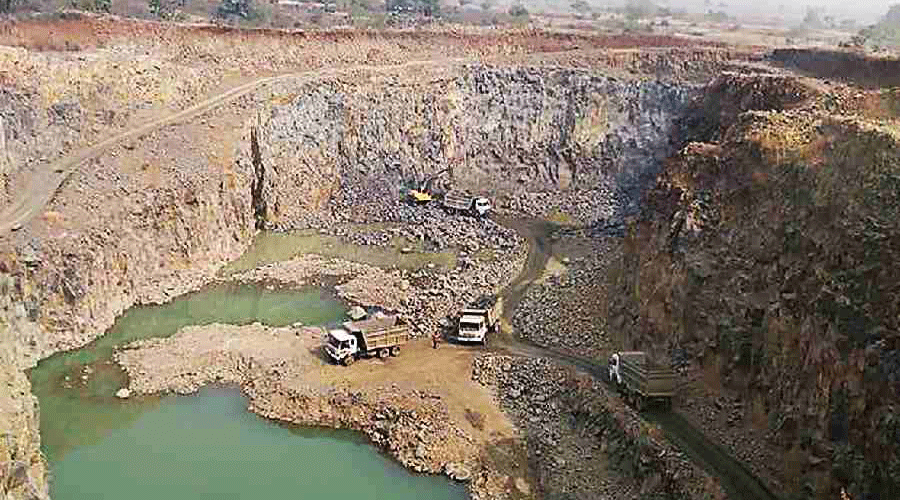Five pressure groups in poll-bound Meghalaya drew the attention of the state government to their demand to change two clauses in the standard operating procedures (SOP) for granting licences and leases for coal mining in the state.
The Hynniewtrep Youth Council (HYC), East Jaintia National Council (EJNC), Jaintia Students’ Movement (JSM), Hynniewtrep A’chik National Movement (HANM), Confederation of Ri-Bhoi People (CoRP), raised the SOP issue at a rally held at Khliehriat in East Jaintia Hills district.
HYC general secretary Roy Kupar Synrem told The Telegraph that the pressure groups reiterated their demand for a change to the SoP because the government had not responded to their letter submitted in November.
The National People’s Party (NPP) leads a coalition government in Meghalaya.
The groups also raised other pending demands such as the introduction of the inner line permit (a travel document to enter protected areas), recognition of the Khasi Language in the Eighth Schedule of the Constitution and reservation for local youths in private sector jobs.
In their representation to chief minister Conrad Sangma and deputy chief minister Prestone Tynsong, the five groups wanted the government to amend two clauses in the SoP issued in March 2021 for the grant of licence/lease for coal mining in Meghalaya.
One of the clauses the groups wanted to be changed said prospective licence should be for an area of not less than 100 hectares.
“This is totally unacceptable as only very few tribal land owners will have possession/ownership over so much area... land owners who have less area ... will be deprived of earning livelihood through coal mining,” the letter said.
The groups have contended that the 100-hectare clause will further “allow/encourage the big companies and bigwigs to acquire huge chunks of land and further monopolise the coal business, creating wealth disparity thereby affecting the “inclusive growth of our people”.
Roy said the Indian Bureau of Mines, Nagpur, has specified that the minimum area for grant of mining lease in respect of minerals should not be less than four hectares.
The other clause in the SoP the groups wanted to be amended to “suit the local situation” is where the land owner and the applicant “only need to sign an agreement for the purpose of applying for a prospecting licence/mining lease”.
The five groups want an agreement only between tribals for coal mining because it was in line with the state’s “customary land tenure system and also in line with the Meghalaya Transfer of Land Regulation Act, 1971”.
Under the Act, the property cannot be sold/transferred to a non-tribal, who also cannot sell or transfer his/her property to another non-tribal.
“We want the agreement clause amended because it will fuel benami activities. We want the changes in clauses for the benefit of our people,” Roy said.
In July 2019, the Supreme Court upheld the rights of the state’s tribal populace to lease their land for coal mining after obtaining approval from the government.
While lifting the ban imposed on rat-hole mining in the state by the NGT in 2014, the apex court had ruled that the ban will not be applicable if coal mining is carried out under the Mines and Minerals (Development and Regulation) Act and the Mineral Concession Rules 1960.










